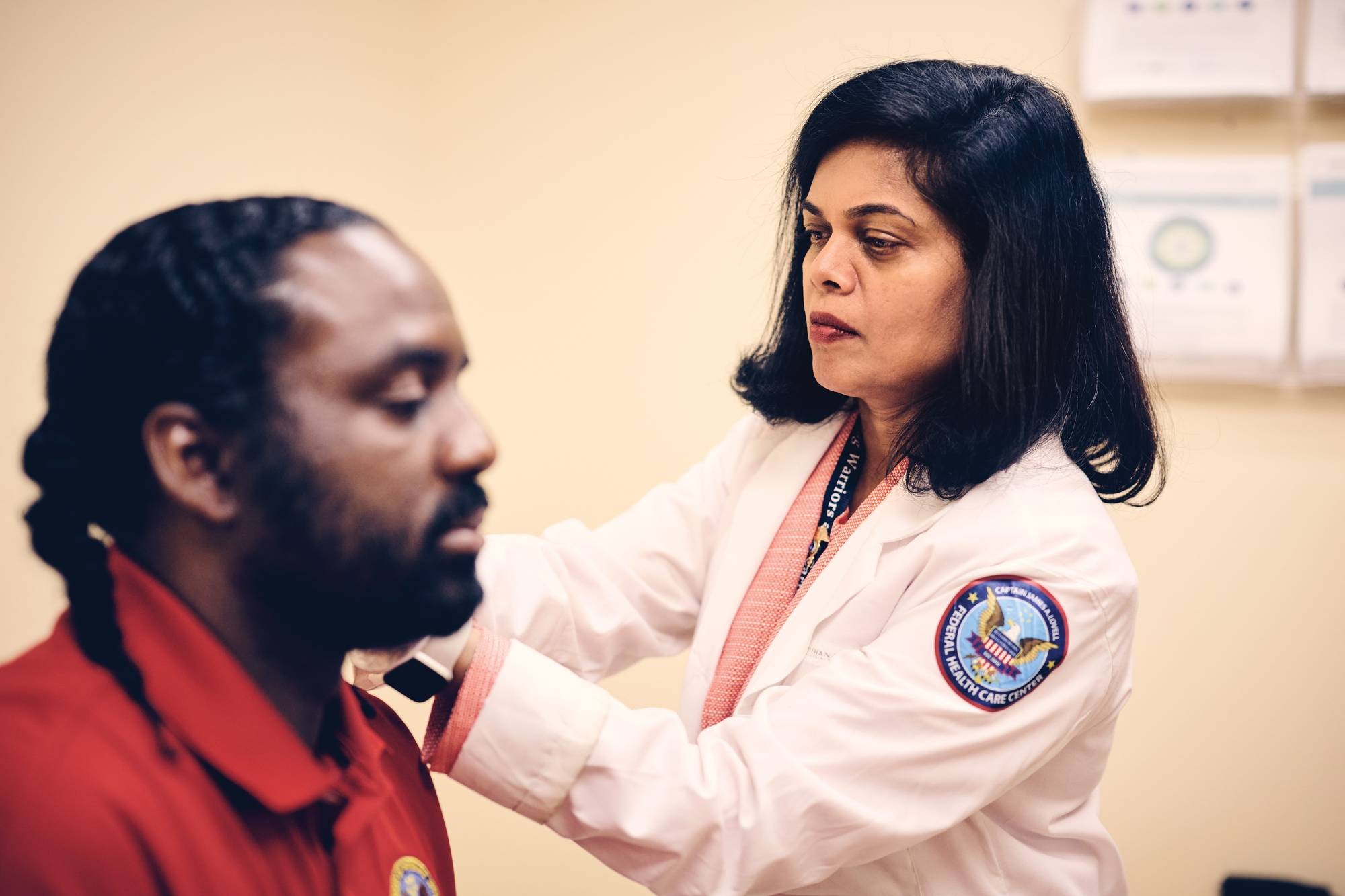Kim Westerman, MFA, EdD, is a travel and wellness writer, coffee expert and longtime university writing teacher based in Berkeley, California.
Author Page
Breaking Down Stigma
Dealing with mental-health diagnoses in marginalized communities
Photo by Max ThomsenCommunity & Service
Long before Kamilah Banks-Word, MD ’14, knew the term “stigma,” she intuited there was shame around mental-health conditions and had the sense there was no way out for the most vulnerable. Her stepfather’s mother had schizophrenia and wasn’t able to comply with treatment, so she witnessed up close the havoc wreaked by untreated mental-health conditions and their trickle-down effects on the whole family.
Dr. Banks-Word grew up in Cabrini-Green, the former housing project in Near North Chicago. From a young age, she observed a great deal of suffering around her — people talking to themselves, seeming quite unwell, even anguished — which she later came to understand was untreated mental illness, often connected to poverty. These were her neighbors, people in her community she saw almost every day. She recalls asking her mom: “Why is this person sick? What’s wrong?”
Now a child and adolescent psychiatrist, Dr. Banks-Word works at the West Town branch of Erie Family Health Center in Chicago, a Federally Qualified Health Center (FQHC) that treats underserved populations in the inner city and surrounding areas, including many from ethnic minority groups.
FQHC facilities are “safety net” providers that receive federal funding to treat members of minoritized communities in outpatient settings — in other words, patients who likely would not have access to medical care otherwise. Dr. Banks-Word reports that changes in federal funding have made it more challenging for some to get care, including a significant increase in migrants ages 42–64 who are losing health benefits. Erie’s mission is to serve all, regardless of ability to pay or immigration status, so the organization is finding creative approaches to funding, including working with state agencies and private donors, so no one falls through the cracks.
Recent studies have confirmed a suspected causal link between poverty and nine mental-health diagnoses, including illnesses Dr. Banks-Word treats every day in her practice, such as bipolar disorder, major depressive disorder, obsessive-compulsive disorder, post-traumatic stress disorder and schizophrenia.
The social stigma that has long been associated with mental illness is exacerbated in marginalized communities. Dr. Banks-Word peels back these layers of complexity to first address the shame her patients feel, which is often an obstacle to seeking care. Add to this caregiver stress, economic hardship and legislation that excludes or makes access to medical care difficult, and we’ve got a devastating problem of social isolation and untreated illness that causes harm at both the individual and community levels.
Dr. Banks-Word’s approach is to treat each patient as a whole person within a family structure and each diagnosis as a specific health problem, working not only with medications but also with natural interventions such as meditation, exercise, therapy, and over-the-counter vitamins and supplements. A holistic approach to care allows her to educate patients in resisting media representations of poverty and mental illness, because she approaches them as people suffering with health conditions, rather than as people who are “crazy” or somehow to blame for their symptoms. It also addresses learned self-stigma, generational shame and “minority stress” — the extra stress people from minority groups are exposed to as a result of their social position.
Dr. Banks-Word, herself, faced a difficult path to her medical degree, given that “STEM was not exactly a household word” in Cabrini-Green. The support she found in college and medical school — including serving as a National Health Service Corps Scholar and participating in RFU’s Pre-Matriculation Program — set her on a course to become a healer, a helper and a doctor. The observant empathy she’d discovered as a child is now employed to help patients heal from stigma and transform their relationship to mental health.
Published November 21, 2025

